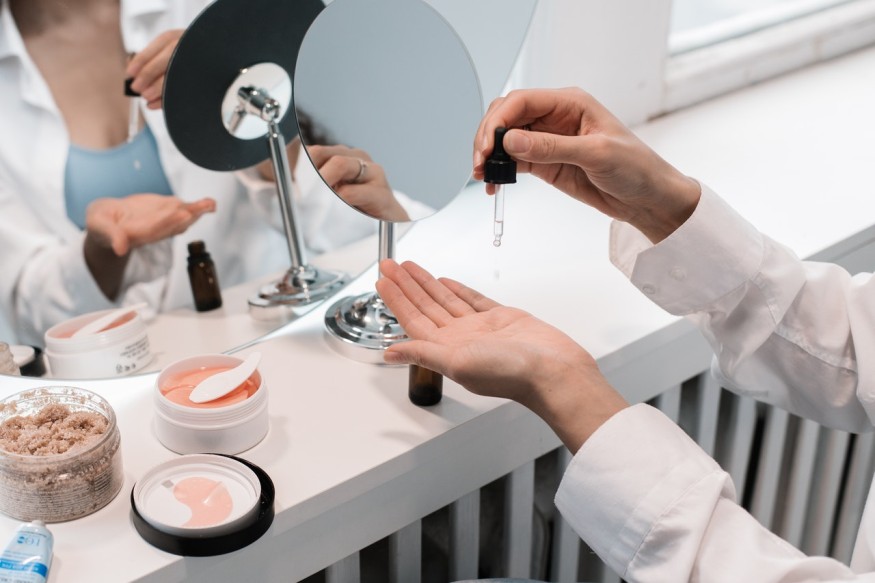
Dry and dull skin is a common concern in the winter. While vitamin C has been the buzziest skincare ingredient for brightening, sensitive skin sometimes develops negative reactions to it. Redness is a common sign that vitamin C isn't the right brightener for you. If you've tried a low concentration and still experience it, it's time to look for skin brightening alternatives. To achieve a glowing complexion, here are the top five alternatives to Vitamin C for skin brightening.
Azelaic Acid
According to Byrdie, azelaic acid is an exfoliant. It lightens hyperpigmentation, removes dead skin cells, combats acne, and treats rosacea. Dermatologist Dr. Francesa Fusco adds that just like vitamin C, azelaic acid has antioxidant and anti-inflammatory properties. It's also a less irritating option to treat inflammatory skin conditions like rosacea. Dr. Fusco also mentions to Byrdie that azelaic acid is generally safe for pregnant women. If you're acne prone and have leftover dark spots from breakouts, Cosmopolitan recommends The Ordinary Azelaic Acid Suspension 10%, Bliss Green Tea Wonder Clarifying Overnight Gel Mask with Azelaic Acid or Typology Mattifying Serum 10% Azelaic Acid.
Kojic Acid
Kojic acid comes from fermented rice or mushrooms. According to InStyle, kojic acid can deeply penetrate the skin and stop the production of melanin. It's great for treating hyperpigmentation from excessive sun exposure or acne breakouts. Dermatologist Dr. Dhaval Bhanusali tells Byrdie that kojic acid is a great alternative for hydroquinone, an ingredient commonly found in brightening skincare products. Just like vitamin C, kojic acid is an antioxidant that protects that skin from free radicals. Try SkinCeuticals Discoloration Defense, Glytone Dark Spot Corrector or La Roche-Posay Mela-D Pigment Control Serum.
ALSO READ : How to Get Rid of Dark Marks from Acne Breakouts
Niacinamide
Another buzzy ingredient, niacinamide or vitamin B3 is a dermatologist-favorite for its brightening and moisturizing benefits. Dermatologist Dr. Marnie Nussbaum shares with Popsugar that niacinamide also deals with fine lines, wrinkles and enlarged pores. With its many benefits, niacinamide is a powerhouse ingredient that you should add to your skincare routine. Cosmopolitan suggests these budget-friendly options: The Ordinary Niacinamide 10% + Zinc 1%, The Inkey List Niacinamide and Olay Wrinkle Correction Serum with Vitamin B3+ Collagen Peptides.
Tranexamic Acid
Tranexamic acid has long been used in the medical world to reduce the breakdown of blood clots and to stop bleeding. Dermatologist Dr Anjali Mahto tells Elle UK that the ingredient kept coming up in dermatology circles for treating melasma, age spots and pigmentation. Applying it topically has low side effects and that's what made it a popular choice for skincare products. If you need help with the aforementioned skin concerns, Elle UK recommends The Inkey List Tranexamic Acid Overnight Treatment, Murad Replenishing Multi-Acid Peel or Dr. Ceuracle Pure Vc Mellight Cream.
Alpha Arbutin
Alpha arbutin is a plant-based compound usually found in mulberry, bearberry, and pomegranate. Dermatologist Dr. Claire Chang tells Shape that it's a derivative of hydroquinone but without the side-effects. Just the all the ingredients in this list, alpha arbutin is best for any type of discoloration that comes from frequent sun exposure, melasma or acne scars. Dermatologist Dr. Ife Rodney adds that alpha arbutin works well other brightening ingredients like azelaic acid, kojic acid, niacinamide and vitamin C. You can try The Ordinary Alpha Arbutin 2% HA, SkinCeuticals Phyto+ or Obagi Clinical Vitamin C+ Arbutin Brightening Serum.
